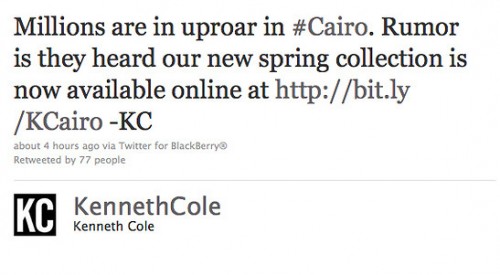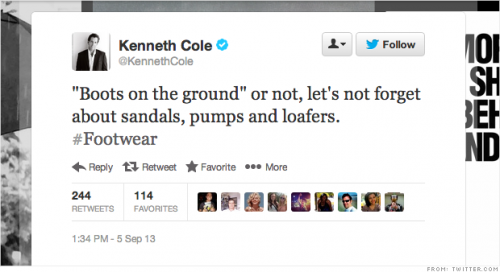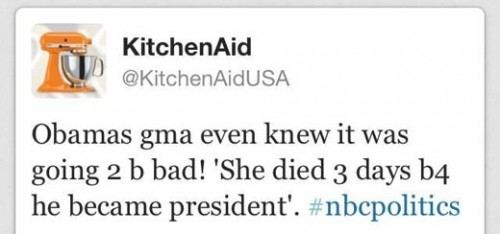Brought down by Twitter mistakes: It's possible
Twitter. The bane of many small businesses’ existences. A social media tool that began as a way for youngsters to alert the world to their every emotion is now a must-have resource for businesses that want to stay connected to their customers.
Like it or not (and there are many reasons to not like it), Twitter is an avenue for communication – a way for your customers to request information (“Yo, @cupcakesareus, are you open today? I need a red velvet or I’ll diiiee!!!), give you instant feedback on their experience (“@cupcakesareus sold out of red velvets again? Make moar, dawg!!”), or spread the gospel about you (“@cupcakesareus makes the best red velvets in town. Get some!!!”). It’s also a way for exclamation points to get their workout for the day.
If your business has a Twitter account, you pretty much know how it works. What you may not know is how Twitter can work against you. Oh yes, it may seem like an innocuous little thing – after all, your 12-year old niece has been posting her thoughts on playground politics, the lack of gluten-free options in the school cafeteria, and Justin Bieber’s hair for three years – but those 140 characters can have the power to bring down your business if you let them. Following are some examples on how to avoid some common Twitter mistakes.
Keep your personal opinions on your person
Twitter isn’t always about drumming up word-of-mouth about your business – it also can be fun. Which is why you have an account for your business, and one for your friends and family. You can say whatever you want on your personal account because you’re entitled to your opinions and if someone doesn’t agree, they can kick rocks, right? Nope.
First things first: If your personal Twitter account is not locked, anyone can follow you. Your friends, your neighbor down the street, that customer who had a bad experience and is looking for a way to discredit you and your business to anyone who will listen. You are entitled to your opinions, sure. But know that, in your customers’ eyes, you are your business. Your opinions are your business’s opinions. An example:

The above is a Tweet from Dan Cathy, president of Chick Fil-A, following the Supreme Court’s overturning of the Defense of Marriage Act. Mr. Cathy has been very vocal in the media about his opinion on gay rights, much to the chagrin of Chick Fila-A’s PR team, who have been extremely busy trying to distance the company from its president’s personal opinions. Why? Because to the rest of the world, what Mr. Cathy believes is what Chick Fil-A believes, and those customers who disagree with him have made no bones about thinking twice about where they get their fast food chicken strips, something Mr. Cathy finally seems to be realizing, as the Tweet above was deleted shortly after being posted. Deleting that Tweet doesn’t matter, though, because:
The Internet is forever, ever, ever ...
Know what a screenshot is? It’s when someone uses their computer or phone to take a picture of whatever they’re looking at on the Internet. If you post something rant-y on your Twitter account, and someone decides to take a screenshot before you come to your senses and delete it minutes later? Sorry, buck-o: game over. That screenshot will live on forever, because nothing ever really disappears from the Internet, and that thing you want scrubbed is the thing that is going to be brought up and retweeted every time someone has beef with you or your business. Ask Dan Cathy’s PR team.
There are no winners in a Twitter fight
People are going to say bad things about you and/or your business on Twitter, sure as the sun rises, sure as there’s a Kardashian on at least three magazine covers at all times. It’s human nature to be kinda jerk-y online, and there isn’t much you can do about that. What you can control, though, is your response to negative Tweets. Offering to talk one-on-one with a disgruntled customer, offline, in person or on the phone, is good. Engaging in a war of words via a series of Tweets is baaaaaad. It may feel good to take down a critic, especially if you know you’re in the right, but it makes you look thin-skinned, petty and ridiculous. Always take the high road. And speaking of high:
Don't drink & Tweet
This seems obvious, but the reason I bring it up is for a slightly less obvious reason. Let’s say you have a couple drinks and decide to Tweet about the inappropriate dream you had about Geraldo Rivera after seeing the much-regreted, half-naked selfie he Tweeted. It’s all good because you’re Tweeting from your personal account, and it’s locked, so only your friends can see it. Only, because you’ve been drinking, you don’t notice that you’re logged in to your business account, and now your customers know that mustachioed septuagenarians are totally your new thing. Whoops.
Sounds implausible (not just because of Geraldo Rivera), but this scenario happens more than you know. Thanks to smartphones, we are able to manage to multiple Twitter accounts at once, which means that you have to be very aware of which account you are Tweeting from at all times. Don’t believe me? Ask KitchenAid who, thanks to someone on their team who wasn’t paying attention to which account he was logged into, Tweeted this:
Publicly disparaging the president of the United States by talking about his deceased grandmother? Not good for the image of your business,believe it or not. And, as stated above, the public loves mistakes like this, which means your momentary lapse in awareness will live on forever, like a Chee-to.
The anniversary of 9/11 is not a selling opportunity for you
Seems like common sense, but it still must be said: Do not use world tragedies to bring attention to your business. Do not pull a Kenneth Cole, which sells shoes, and which used the uprisings in Egypt in 2011 to deliver this message:

Yikes, right? Not ones to learn from the public tongue-lashing the company received over that Tweet, two years later, Kenneth Cole Tweeted the following, in reference to military action in Syria:

All publicity is good publicity, right? No.A thousand times no.
Like all social media, Twitter is a good way to keep the lines of communication open between you and your customers. If you take the time to make sure you’re using the medium properly, and avoid speaking about world leaders’ grandmas or posting shots of you wearing nothing but a towel and a smile, you’ll be all right.





